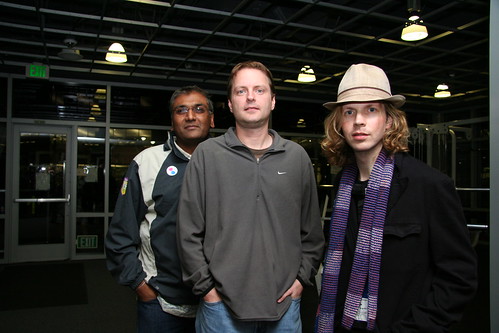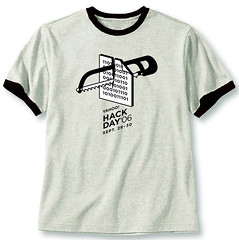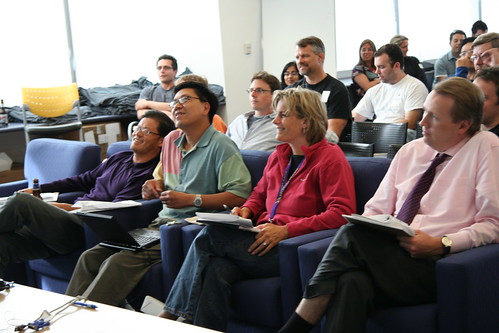There’s a noticeable difference between the hacks presented at Yahoo!’s internal hack day today and the ones from a year ago when the program began. It’s like the end of pre-season when the starters come out to show everyone how it’s done. Ash Patel even joined in with a very smart idea of his own.
 When hack day began I think there was this excitement in creating purely for the sake of creating. That energy is definitely still core to what people are doing, but people are now combining business strategy along with their bits of code magic. Rather than funny greasemonkey overlays and simple mashups that challenged ideas, today we saw clever uses of core Yahoo! platforms that could actually alter revenue performance.
When hack day began I think there was this excitement in creating purely for the sake of creating. That energy is definitely still core to what people are doing, but people are now combining business strategy along with their bits of code magic. Rather than funny greasemonkey overlays and simple mashups that challenged ideas, today we saw clever uses of core Yahoo! platforms that could actually alter revenue performance.
There were some hilarious demos, too, including the first paper-based hack and a great Wii hack.
The formula for the event is clearly a winner at this point and one that I think could be applied in any medium to large sized company. Chad’s original concept is still spot on:
“Hack Day at Yahoo! has minimal rules: 1) Take something from idea to prototype in a day; 2) Demo it at the end of the day, in two minutes or less (usually less)”
and more here:
“Hack Day is a day for the celebration of hackerdom, a tip of the hat to the artists among us who express themselves in code, a recognition of the pure joys of creation. Yes, hackers are artists. As I wrote in one of my old InfoWorld columns: ‘If art is making order out of chaos, then software developers are artists at the highest level.’ “
I didn’t think hack day would work as an ongoing thing 9 months ago or so. I thought it would lose its edginess or get coopted by marketing people or frustrate coders whose great ideas didn’t make it to market.
In fact, the opposite has happened. The hacks are getting more clever and harder to top. Powerpoints fail every time unless used purely for laughs. And people across the organization are productizing the hacks and thinking differently about how to get these ideas into the real world.
Interestingly, Jerry Yang still sits through every hack (nearly 5 hours of demos this time!). I love the fact that people can engage him from the stage and joke with the other executives who are judging.
Hack day is really part of the process at Yahoo! now. It’s so effective that it’s getting hard to imagine how the company unlocked smart, innovative and actionable ideas without it.



